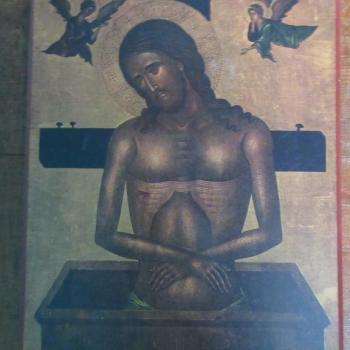I am opening up the comboxes today for discussion on episcopal leadership in the United States. One of the more interesting topics in the dialogue between East and West has been the use of episcopal conferences. Then Cardinal Ratzinger stated that the patriarch formula worked fine in the East, but the conference scheme worked for us in the West. I think that formulation is debatable.
There are those who would like to get rid of the USCCB. I think there are arguments for it, although I won’t be addressing them here since the question I’m asking isn’t really dependent upon addressing the issue. There is however an argument for greater leadership of certain bishops and sees. This is complicated by our history. Rather than New York or Philadelphia as our country’s permanent capital, Washington was chosen, a place so undeveloped that visiting ambassadors received hazard pay. While capitals have traditionally been the premier Sees in various countries, they have also tended to be the centers of the national civic life.
Archbishop O’Brien of Baltimore would be a justifiable choice to exert more leadership given his placement in the oldest diocese in the U.S. Archbishop Wuerl would seem an appropriate choice, but one can very easily make an argument that Washington is not a Catholic center. The more natural choices given population would Cardinal Mahony of Los Angeles, Cardinal George of Chicago, and Cardinal Egan of New York. Of the three Cardinal Egan would seem more natural given New York is a commercial center for the country; Cardinal Mahony would seem natural given that he leads the largest Archdiocese; Cardinal George seems most appropriate in his actual participation in the national debate with his frequent writings. Of course if one already likes what a bishop has to say, this makes the choice easy. I think a reasonable argument can be made that the see itself should have an intrinsic prestige that causes respect.
I bring this up, because there doesn’t seem to be a natural place to go for Catholic policy that addresses national politics. Yes, the USCCB does produce its own papers, but it is not a policy making organ and it is not intended to be one. It is expressly at the service of the bishops to aid them addressing national issues and coordinating those responses. I don’t come at this issue with any bone to really pick with the USCCB. I generally like them. But I do think there is a lack of leadership and a lack of recognition for the deference owed the major sees. The question for those interested: how should our nations’ bishops go about better articulating the teachings of the Church?











